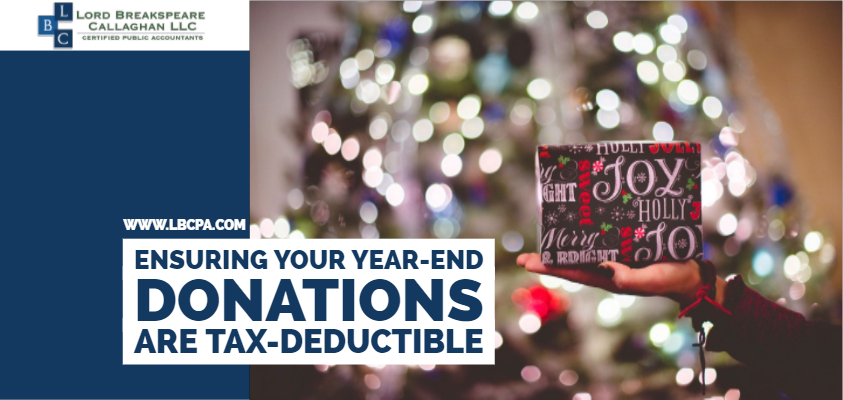LBCPA News 
Click here to go back
ENSURING YOUR YEAR-END DONATIONS ARE TAX-DEDUCTIBLE

Many people make donations at the end of the year. To be deductible on your 2017 return, a charitable donation must be made by December 31, 2017. According to the IRS, a donation generally is “made” at the time of its “unconditional delivery.” But what does this mean?
Is it the date you write a check or charge an online gift to your credit card? Or is it the date the charity actually receives the funds? In practice, the delivery date depends in part on what you donate and how you donate it. Here are a few common examples:
Checks. The date you mail it.
Credit cards. The date you make the charge.
Pay-by-phone accounts. The date the financial institution pays the amount.
Stock certificates. The date you mail the properly endorsed stock certificate to the charity.
To be deductible, a donation must be made to a “qualified charity” — one that’s eligible to receive tax-deductible contributions. The IRS’s online search tool, “Exempt Organizations (EO) Select Check,” can help you more easily find out whether an organization is eligible to receive tax-deductible charitable contributions. You can access it at https://www.irs.gov/charities-non-profits/exempt-organizations-select-check. Information about organizations eligible to receive deductible contributions is updated monthly.
Many additional rules apply to the charitable donation deduction, so please contact us if you have questions about the deductibility of a gift you’ve made or are considering making. But act soon — you don’t have much time left to make donations that will reduce your 2017 tax bill.
If you have any questions regarding accounting, domestic taxation, international taxation, IRS representation, U.S. tax implications of Real Estate transactions or financial statements, please. give us a call at 305-274-5811
Source: Thomson Reuters






